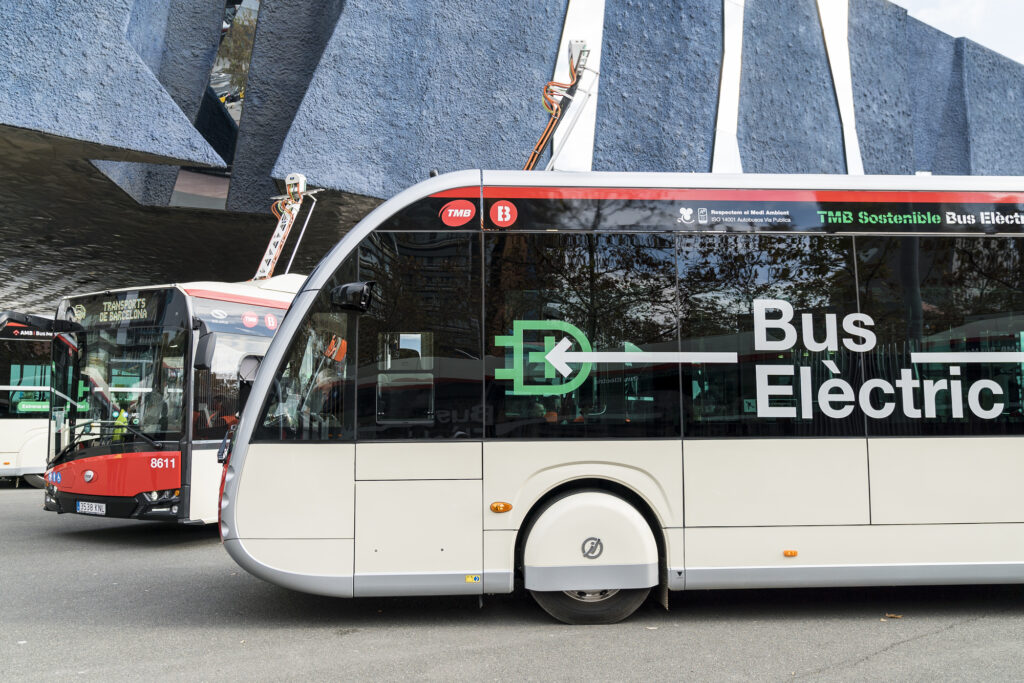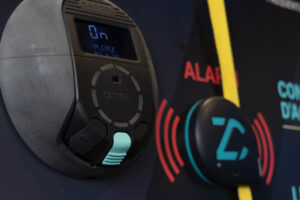
SUST(AI)N: Smart building based on AI processing
July 7, 2023
sensQ: UPC technology to standardise and improve quality control in fermentation processes in the agri-food industry
September 6, 202328/08/2023
The research group Barcelona Innovative Transportation (BIT) and the innovation and research laboratory of Barcelona School of Informatics (inLab FIB) at the Universitat Politècnica de Catalunya - BarcelonaTech (UPC) are taking part in the project eBRT2030 (European Bus Rapid Transit of 2030: Electrified, Automated, Connected).
The aim is to create a new generation of high-performance European buses that are urban and peri-urban, totally electric and with new functionalities of automation and connectivity, to make urban transport more sustainable and environmentally friendly. This will reduce the cost per kilometre and passenger, the total cost of ownership (TCO), the greenhouse gas emissions and traffic congestion.
The eBRT2030 project is focused on three main areas:
- The development of technology-focused innovative solutions for BRT, both at system and subsystem level (that is, integrating the vehicle, infrastructure, operation, and IoT connectivity).
- Seven demos of Bus Rapid Transit (BRT) system innovative solutions in real-operation carried out in Barcelona, Athens, Amsterdam, Prague, Rimini, Eindhoven and Bogota. The pilot projects are focused on the city, the operator and the BRT system, or on specific technology innovations at subsystem level that are ready for BRT operations, in Europe and outside Europe (in Latin America). These demos should be fully integrated in the whole urban mobility scenario.
- The definition of a new European concept of BRT for the year 2030, benefitting from the evaluation, multiplication and replication of the real-operation test of innovations, which improve the performance of the entire European urban bus system.
All cities that participate in the eBRT2030 project have BRT lines already in operation or launched in 2023, and are strongly committed to innovate with electrification, automation and connectivity technology tailored to the characteristics of European bus operations.
The UPC is participating in the Barcelona demo, to provide an optimal sequence of charging operations at street stations for the H12 BRT route.
Consortium, budget and funding
The project will last three years (January 2023 – December 2026) and has the participation of 45 European partners, including the UPC. It has a total budget of €22,776,213.57 and is funded through the Horizon Europe 2021-2027 call of the European Union.

Sector
You want to know more?
Related Projects
- The Image and Video Processing Group (GPI), part of the IDEAI-UPC research group, and the Digital Culture and Creative Technologies Research Group (DiCode) from the Image Processing and Multimedia Technology Center (CITM) at the Universitat Politècnica de Catalunya – BarcelonaTech (UPC), have co-organised the AI and Music Festival (S+T+ARTS) together with Sónar+D and Betevé, to explore the creative use of artificial intelligence in music.
- The Visualisation, Virtual Reality and Graphic Interaction Research Group (ViRVIG) at the Universitat Politècnica de Catalunya - BarcelonaTech (UPC) has participated in the XR4ED project, an initiative that connects the educational technology (EdTech) and Extended Reality (XR) sectors, with the aim of transforming learning and training across Europe.
- The inLab FIB at the UPC has collaborated with Lizcore® for the development of a proof of concept based on artificial intelligence to improve safety in climbing with autobelay devices. The system allows the automatic and accurate detection of risk situations before starting a route.
- Researchers from the Centre for Image and Multimedia Technology of the UPC (CITM) and from the DiCode research group (Digital Culture and Creative Technologies Research Group) of the Universitat Politècnica de Catalunya – BarcelonaTech (UPC) have worked on the project The Eyes of History, an initiative of the Catalan Agency for Cultural Heritage that offers an immersive view of Catalan cultural heritage. It is especially aimed at the first and second cycles of secondary education and was created to bring heritage into the classroom. Its goal is to bring the history and monuments of Catalonia closer in a vivid and innovative way, using tools such as virtual reality and new museographic narratives.




